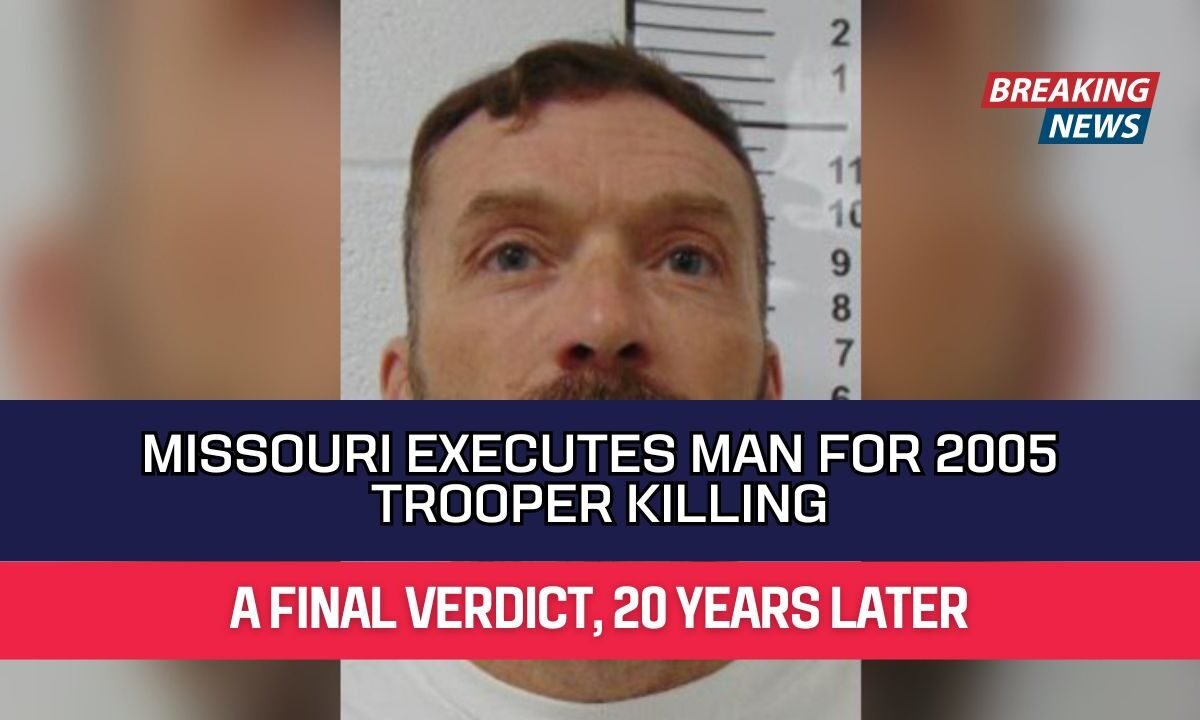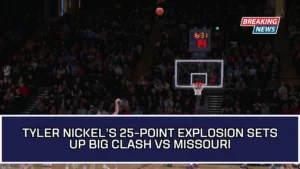A Missouri man named Lance Shockley was executed in 2025 for the 2005 killing of a state trooper—even though he always said he was innocent.
This case stirred debate about justice, DNA testing, and whether the death penalty should ever be final. Let’s walk through what happened, step by step, and see why this matter still raises many questions.
What Happened: The Crime and Conviction
The Shooting
In March 2005, Missouri State Highway Patrol Sgt. Carl Dewayne Graham Jr. was shot dead near his home in Van Buren, southeast Missouri. Prosecutors claimed Shockley waited near Graham’s house for hours. After Graham exited his patrol car, Shockley fired both a rifle and a shotgun at him.
Conviction
Shockley was arrested and later convicted of first-degree murder. Evidence presented by prosecutors included ballistics links, witness testimony, and his alleged movement. However, Shockley’s lawyers called the evidence circumstantial.
The Execution
Timeline & Method
On the evening of his execution, Shockley, 48, was declared dead at 6:13 p.m. by lethal injection at the state prison in Bonne Terre.
In the death chamber, his head was propped on a pillow. He lifted it and spoke briefly to loved ones watching from a soundproof room. After around 90 seconds, he rested back.
Witnesses
- 7 persons represented Shockley
- 12 represented the trooper’s side
- 13 were official state witnesses
Some cried, some remained still. The woman trying to communicate motioned until he lay back.
Last Moments: Meal, Visits, Statement
Before his execution:
- He met with his daughters and a friend in the morning.
- His last meal: peanut butter, three oatmeal packs, water, and two sports drinks.
- In his final written statement, he wrote: “So also you have sorrow now, but I will see you again, and your hearts will rejoice, and no one will take your joy from you.”
His last appeals failed. The U.S. Supreme Court declined to act. Missouri’s governor also rejected his request for clemency.
Reaction & Grief
From the Trooper’s Family
Graham’s family said that losing him “left a profound emptiness” in their lives. No legal step could fully heal their wounds, they added, but the end of the process brought some closure.
From Law Enforcement
Colonel Michael Turner of the Missouri State Highway Patrol praised Graham as a model officer—respected, committed, and driven to help others.
Legal Drama: DNA Testing & Appeals
Push for DNA Testing
Shockley’s lawyers wanted DNA tests on evidence that had never been tested. They argued even a small chance of proving innocence was enough to demand testing.
They also claimed Shockley’s First Amendment rights were violated because his daughter wasn’t allowed to act as his spiritual adviser during execution—a point tied to a 2022 Supreme Court decision.
Missouri officials countered that security rules forbid direct family contact during executions, to prevent interference.
The Case’s Weak Spots
- The murder weapons were never found
- The prosecution’s case depended heavily on circumstantial evidence
- Some ballistics experts disagreed
- Witnesses claimed to place Shockley 14 miles away at certain times
- Prosecutors said bullets from the crime scene matched ammunition linked to Shockley’s family
Still, prosecutors insisted even favorable DNA results wouldn’t change the conviction.
Additional Context
| Topic | Details |
|---|---|
| Other execution that day | Samuel Lee Smithers, Florida, for 1996 murders |
| Shockley’s defense argument | Evidence is circumstantial; need more testing |
| Governor’s stance | Rejected clemency; supported law enforcement |
| State’s last execution | December 3, 2024 (Christopher Collings) |
Shockley was the first person executed in Missouri in 2025, and no further executions are currently planned in the state.
This case shows how justice can be messy and final. Lance Shockley was executed for the 2005 killing of Sgt. Carl Dewayne Graham Jr., despite many legal debates over DNA testing, evidence strength, and constitutional rights.
The trooper’s family mourns a life lost, while supporters of Shockley question whether the process was fair. Whatever side you take, this event raises deep questions about truth, punishment, and whether our legal system can always get it right—even in death.




